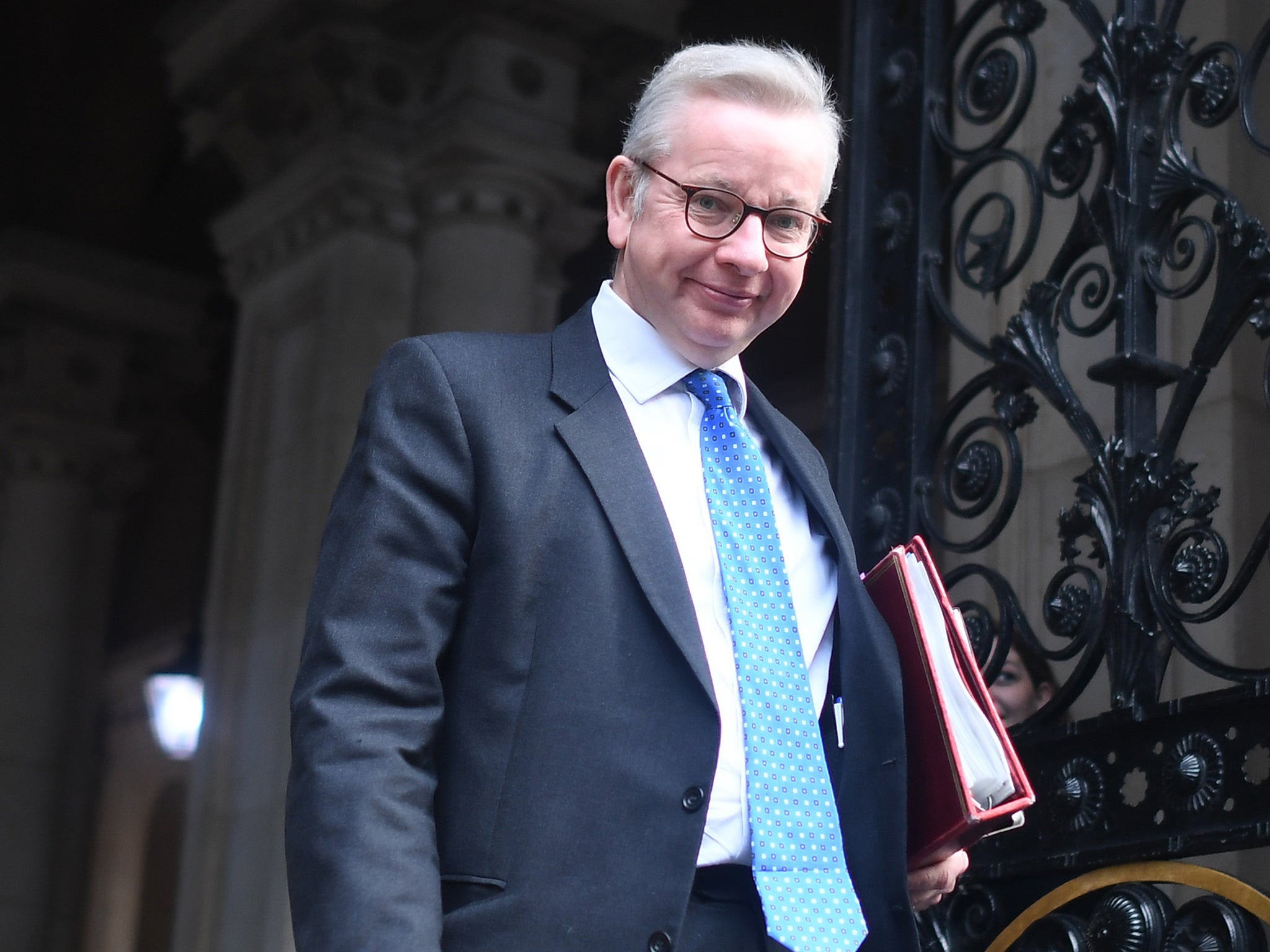What do the revelations mean for Michael Gove?
As The Independent revealed the crude sexual comments made in the past by Mr Gove, Sean O’Grady considers what they could mean for the cabinet minister’s career


What are we to make of the remarks made by Michael Gove as a young, or young-ish, man? Plainly the revelations are what you might call unhelpful to what remains of his political ambition. Gove is a figure whose every public utterance must be weighed for the right balance of evasiveness and politeness, each expression carefully fettled to provide flexibility for the possible/inevitable U-turn: he is a man who has perfected the art of saying nowt.
Apart from a recent excursion onto the dancefloor – and of course the oblique column written by his wife, Daily Mail columnist Sarah Vine – Gove has usually succeeded in keeping certain things quiet. A recent biography, A Man in a Hurry, by Owen Bennett, didn’t spill too many toxic beans, and it was Gove who outed himself, during the 2019 Tory leadership campaign, as a cocaine user from around the time in the early 1990s when he was a journalist and attempting to penetrate the “Notting Hill set” of David Cameron, Nick Boles, George Osborne et al.
Actually it was around that time, when Gove was in his mid-twenties, that he was making supposedly witty speeches at debating societies, which contained uncomfortable, offensive, and politically incorrect (even for the time) references to “fuzzy-wuzzies” and “homosexualists”. This is something he also did during his brief time as a rightist enfant terrible on Channel 4’s odd satire show A Stab in the Dark.
Of course he was striking poses, being provocative for the sake of it, and playing devil’s advocate much of the time, yet the attitudes and language now exposed do suggest a darker aspect to his political playmaking at the time. As an intelligent, rather precocious figure – a young fogey fully flaunting the intellectually fashionable right-wing views of the day – Gove was fully conscious of what he was saying. Though always polite to all, he didn’t care, really, what people thought of his views, which were a kind of Powellite-Thatcherite cocktail, served neat.
Given that Boris Johnson shared, and shares, much of that same worldview (“picanninnies” with “watermelon smiles”, remember?) it’s unlikely that these stories will prevent Gove from being reshuffled into the foreign office or the home office, if that’s what Boris Johnson wishes, though certain African states might think it a little tactless. Indeed, youthful indiscretions, embarrassing and damaging as they can be, often have little impact on a politician’s later career.
One exception, funnily enough, was Michael Portillo, whose chances of winning the Tory leadership two decades ago were hurt after he said that he had had “some homosexual experiences” at university. Portillo used an interview with The Times to make his remarks; Gove worked at The Times then, and had already written an early and admiring biography of Portillo.
Since those days, wave after wave of politicians have confessed to taking drugs in their youth, while the internet has provided a permanent, easily accessible archive of off-the-cuff remarks, and jokes in poor taste, that can come back to bite the ambitious hack. John Bercow, for example, who would perhaps be categorised as “woke” these days, was once a member of the Monday Club, a Conservative fringe group that sought the “voluntary repatriation” of people of colour.
Nor are unwise past associations confined to the right. Tony Blair’s cabinet contained at least four past communists of one kind or another (Peter Mandelson, Alan Milburn, Alistair Darling and John Reid), while even Blair has confessed to a very brief flirtation with Trotskyism. In a previous political era, Denis Healey, right-wing Labour chancellor, was a communist in the 1930s because it seemed the only way to fight fascism: a common enough opinion at the time.
What really matters is whether people think that past extremist tendencies persist in the present. In many of these cases, the idea is obviously absurd, and the commies in the Blair government had all the anti-left zeal of the convert, using the methods of Leninist democratic centralism to impose the doctrine of Blairism on what we now know was a basically unreconstructed party. But with Gove – and with Johnson for that matter – you have to wonder how far, and how sincerely, they have actually “modernised” their outlook.


Join our commenting forum
Join thought-provoking conversations, follow other Independent readers and see their replies
Comments